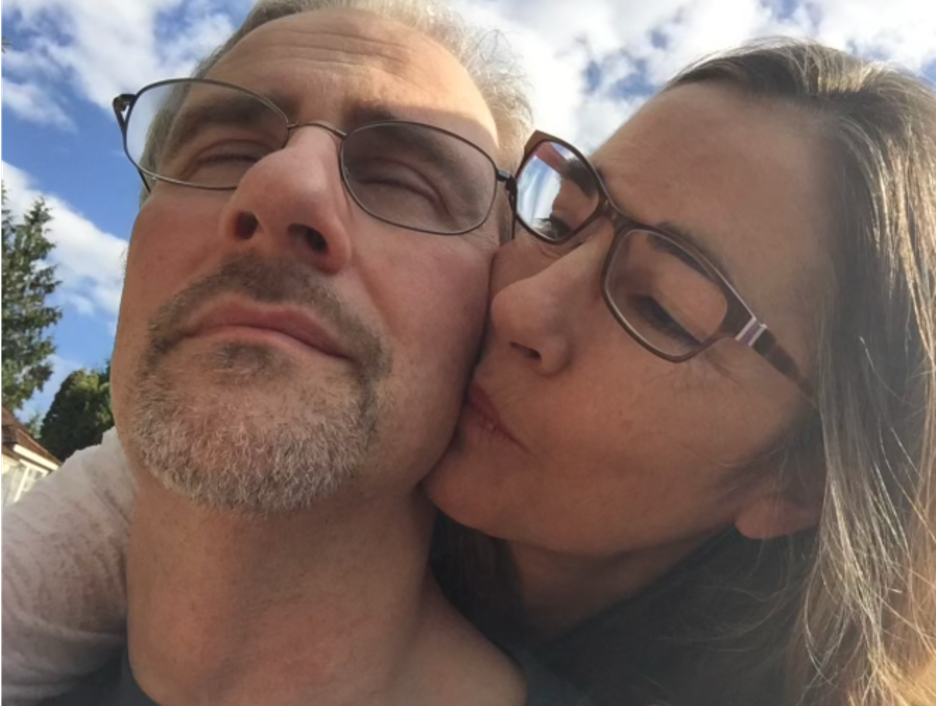The seed that started Zinnia was a longing to enjoy better, more meaningful connection
The seed that started Zinnia was a longing to enjoy better, more meaningful connection
By: Allyson Schrier, Co-founder and President at Zinnia TV and very happy new member of the CAN Caregiver Innovation Council
My sweet-as-they-come husband, Evan, was diagnosed with Frontotemporal dementia at the age of 47. Like all new caregivers, I began the race feeling like I was an unfathomable number of miles behind the starting line. I was constantly learning, figuring things out, getting things wrong. Eventually Evan moved to long term care and it was there that the seed for Zinnia was planted.

As Evan lost spoken language, I found our time together grew increasingly dissatisfying. Our one-sided conversations became more and more transactional. I’d drop off the kids at school, do the grocery shopping, fill the car with gas, then visit Evan. One-sided conversations that followed sounded like, “Boy, there was a ton of traffic at the school drop-off,” and, “They had the most beautiful blueberries at the market,” and, “You wouldn’t believe the price of gas!”
In my search for a way to drive more meaningful conversations, I started bringing in objects for Evan to hold and examine. As he held a hockey puck, or one of his hockey gloves, I could retell stories he’d once shared with me about playing his favorite sport. I could bring maps of ski areas and talk about memories from time we had spent there. He would enjoy holding the kids’ old toy trains and he’d laugh at ‘Clavidor,’ the name our older son gave to small, red engine. Eventually I started showing Evan photos on my phone, then short videos I created using Apple’s Memories product. Slow-paced, themed and set to music, he was able to pay attention, as I narrated what we watched.
Around this time, I would often arrive at the care community to find Evan parked (literally, in a wheelchair that he could not get out of) in front of a TV. Shouting curse words. Pounding his chest with clenched fists. He was demonstrating the anxiety and confusion that he lacked words to describe. Reading research papers I came to understand that people like Evan were unable to track a plot, follow characters or digest rapidly moving audio and video. The resulting emotional chaos drove ‘bad behaviors.’ Far better were videos like those I was creating which he had the stamina to watch, and the ability to absorb.
A conversation with a former Apple engineer (I called wondering how I could add new photos to my phone for incorporation into videos) led to a meeting that led to a decision that we could do this! We could create a tool that helps caregivers better connect and engage with their loved ones, while also helping with activities of daily living, and reducing everyone’s stress. Academic research followed, and in the fall of 2022 we came out with the Zinnia app, which is easy to install, and is available on multiple platforms.
Zinnia had barely started to sprout and I was still in the thick of caregiving. In that role, I learned the importance of accepting help and support. I cannot imagine how I would have made it through without a dedicated community of caregivers that I met with regularly to exchange tips and tricks, to listen to and to be heard by, and to learn from.
My beloved breathed his last in 2019. And now, more than ever, I believe in the power of community. I am SO excited to have been welcomed into the Caregiver Innovation Council (CAN). I look forward to being with ‘my people.’ Folks who get caregiving. Who understand the trials and travails of a person whose life is largely dedicated to the health and wellbeing of a loved one. I look forward to learning from other innovators who share a common purpose. Namely, how do we make life better for the people we have been? How do we bring some ease into their chaotic days? How do we help them find enjoyment during days that are long, and nights that are often longer still? And how do we grow and nurture our businesses so that we can continue doing our good work?
Evan would be proud of the work that we are doing at Zinnia. And thrilled to know that communities like CAN exist to help us and our peers succeed. Evan lost the ability to talk. To walk. To live with the autonomy and independence that he so treasured. But he never lost the ability to smile and to recognize that he was well-loved.



